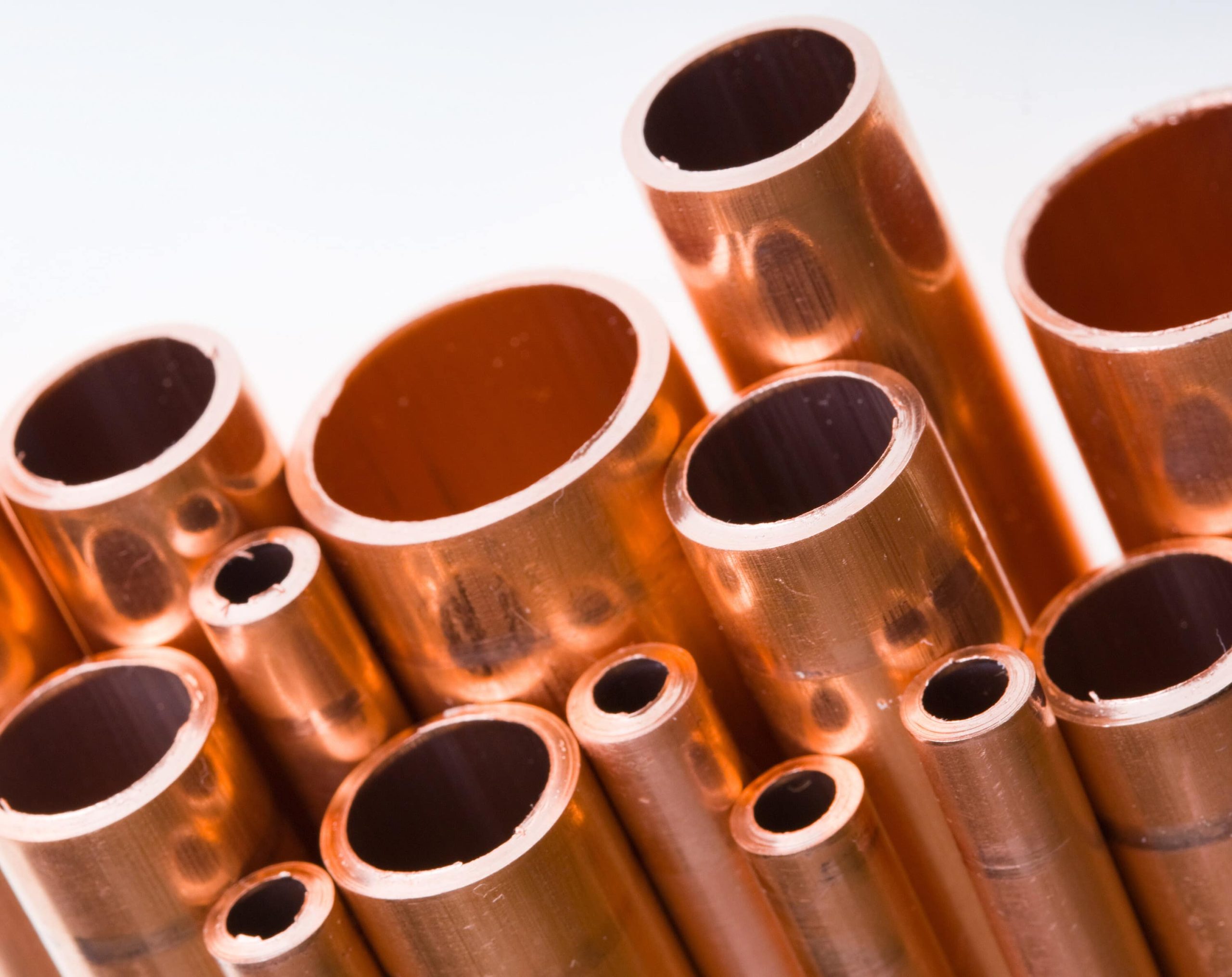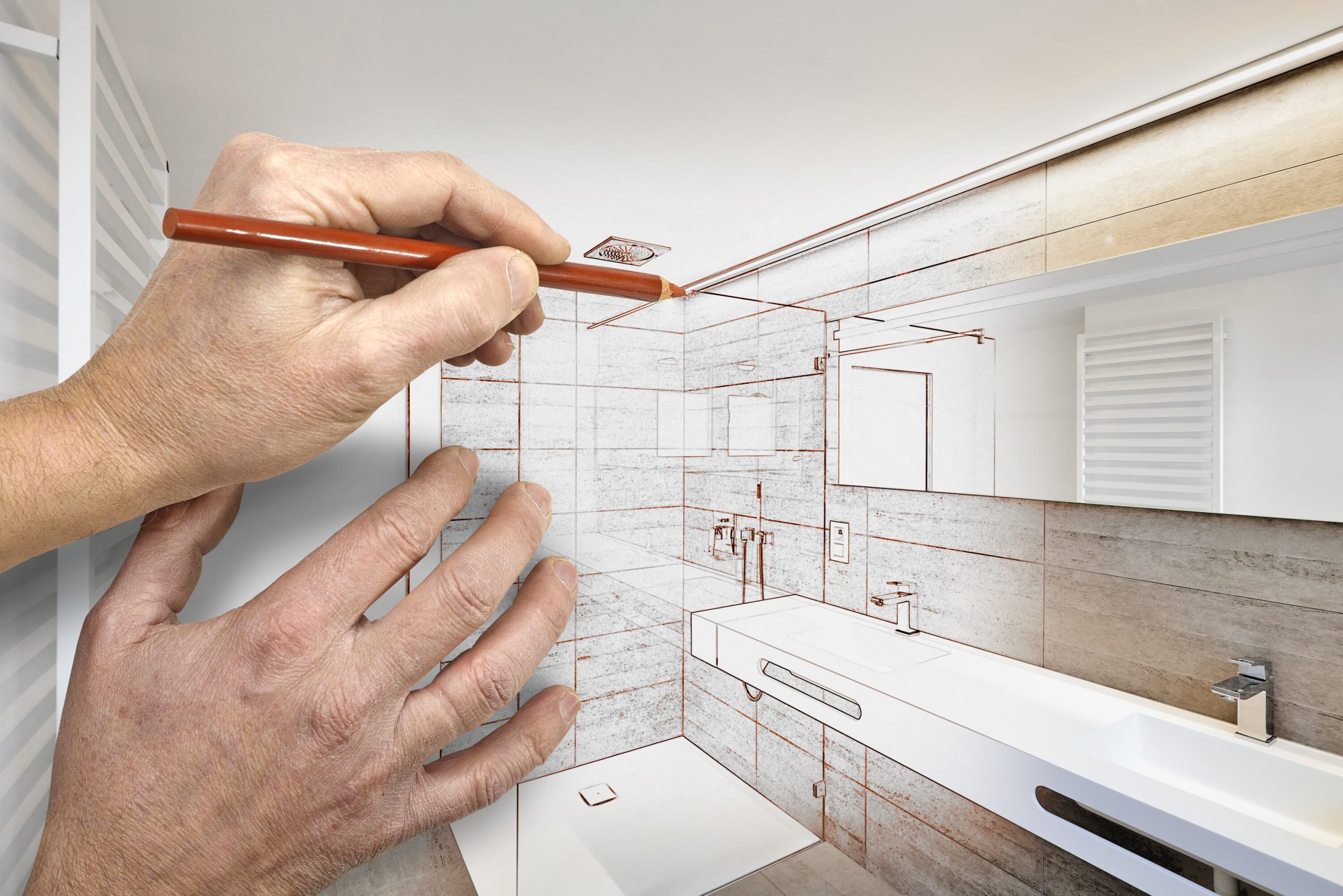
Why Are Copper Pipes Used in HVAC Systems?
Heating, Ventilation, and Air Conditioning (HVAC) systems rely on bringing a lot of different materials together. There is an intricate mix of machinery and ducts that keep your home or business comfortable. One of the most well-known parts of an HVAC system is the refrigerant. This liquid chemical serves to help transfer hot and cold air through the air conditioner. Copper pipes carry this crucial component through an HVAC system. If you have ever seen the inner workings of an air conditioning unit, the bright color of copper pipes easily identifies them. But why are copper pipes used in HVAC systems?
Copper is the metal of choice when it comes to this important part of an air conditioning unit, and for good reason. Copper pipes are durable, work well with refrigerants, and don’t take a lot of material to be made. It can be used in a wide variety of situations and is ready to adapt to the needs of those who create and install pipes for HVAC systems. There are several reasons copper is the long-standing choice when it comes to making sure your air conditioner keeps you comfortable.
A Foundation in Fabrication
HVAC and air conditioning technology has changed a lot since it’s earliest inception. Over time, the materials used to make air conditioning units changed as well. Better and more efficient technologies continue to improve HVAC systems. Refrigerants are now more efficient, newer thermostats and user-interfaces provide more options for homeowners, and fans run quieter than ever before. Copper has also been a part of air conditioning unit fabrication for a very long time. Copper.org explains that copper’s high-quality performance has allowed it to remain a standard part of air conditioning construction. This means everyone involved in the production of HVAC systems is well-equipped to work with copper and make high-quality pipes.
Copper can be the friend of a licensed, local HVAC service provider by offering ease of installation as well. Easy to work with, yet extremely durable once installed, copper pipes are the perfect choice. A copper pipe is, “so ductile that it can be formed—frequently right on the job site—to fit most design configurations.” The material is also versatile enough that it can be used in a wide variety of jobs, from small residential or single-building needs to large scale complexes.
Less is More
Being able to reduce costs and maintain a high level of quality in a building material is a delicate balance. Cutting corners and threatening the reliability and performance of the material is never a good idea. However, the goal is to save costs for both the manufacturer and end customer. Advances in production methods have made copper pipes created with minimal material, while making sure they are durable and reliable. By using copper pipes in HVAC systems, fabricators have successfully reduced the diameter of condenser and evaporator pipes and coils, using less material with more efficiency.
Smaller copper pipes also mean less refrigerant needed for air conditioners to operate. The decreased internal space of an efficient copper pipe requires less refrigerant. This one more way to save HVAC system costs overall.
SEE ALSO: Refrigerants of the Past, Present, and Future
Copper Keeps it Clean
By nature, copper is not a very reactive material. This is incredibly beneficial for pipework that needs to carry refrigerant for years, without any risk of erosion or damage that could negatively affect the HVAC system. Chemists rank the reactivity of different metals on the “reactivity series”. It is a guide to which metals might react to different things like water and acid. Copper ranks with metals like gold and platinum, which have a very low reactivity ranking. Having a natural protection against corrosion is a great advantage and part of what makes copper a long-lasting standard for HVAC system construction.
Even better, copper is also resistant against mold and mildew, which can cause nasty-smelling odors in air conditioning units. Copper has a natural advantage over other building materials. Most HVAC systems are placed in tightly-built spaces, creating moist environments that encourage the growth of mold and mildew. Copper has antimicrobial properties that discourage the presence of nasty, possibly damaging, fungus from building up in hard to access areas.
SEE ALSO: How Important is Air Ventilation for a Healthy Home?
The Number 1 Choice in Pipes
Copper is a natural choice for providing air comfort in home and commercial spaces. Current technologies built on long-standing traditions have made copper pipes lightweight, cost-efficient, and readily accessible to everyone involved in the manufacture and installation of HVAC systems. When it comes to cycling refrigerants through an air conditioning unit, copper’s corrosion resistant qualities ensure it will maintain its integrity for years and help to prevent any refrigerant escape from the system. The anti-microbial aspects of copper help prevent the buildup of mold and mildew that cause nasty odors and negatively affect an HVAC system’s performance. Talk with your local, licensed HVAC provider to make sure your copper pipes are still standing strong.


